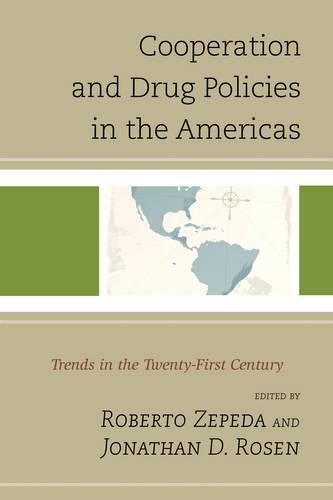
Cooperation and Drug Policies in the Americas: Trends in the Twenty-First Century
(Paperback)
Available Formats
Publishing Details
Cooperation and Drug Policies in the Americas: Trends in the Twenty-First Century
By (Author) Roberto Zepeda
Edited by Jonathan D. Rosen
Edited by Jonathan D. Rosen
Contributions by Marlon Anatol
Contributions by Astrid Arrars
Contributions by Emily D. Bello-Pardo
Contributions by Lilian Bobea
Contributions by Ted Galen Carpenter
Contributions by Brian Fonseca
Contributions by Jean-Claude Garcia-Zamor
Bloomsbury Publishing PLC
Lexington Books
30th June 2016
United States
Classifications
Professional and Scholarly
Non Fiction
Constitution: government and the state
Central / national / federal government policies
Social welfare, social policy and social services
361.25
Physical Properties
Paperback
288
Width 155mm, Height 230mm, Spine 21mm
399g
Description
This volume examines drug policies and the role of cooperation in the Americas. Many current and former politicians have discussed the failures of the war on drugs and the need for alternative approaches. Uruguay as well as Colorado and Washington have legalized marijuana. The Organization of American states produced a report in 2013 which discussed alternative policy options to the drug war. This work examines the nature of cooperation and drug policies in the twenty-first century in the Americas, highlighting the major challenges and obstacles. The argument is that one country cannot solve drug trafficking as it is a transnational problem. Therefore, the producing, consuming, and transit countries must work together and cooperate.
Author Bio
Jonathan D. Rosen is research professor at the Institute of International Studies at the Universidad del Mar, Mexico. Roberto Zepeda is research professor at the Institute of International Studies at the Universidad del Mar, Mexico.
